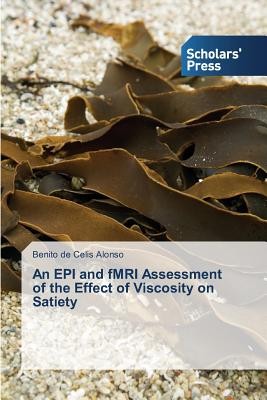
- We will send in 10–14 business days.
- Author: Benito de Celis Alonso
- Publisher: Scholars' Press
- Year: 2013
- Pages: 152
- ISBN-10: 3639702417
- ISBN-13: 9783639702415
- Format: 15.2 x 22.9 x 0.9 cm, softcover
- Language: English
- SAVE -10% with code: EXTRA
An EPI and fMRI Assessment of the Effect of Viscosity on Satiety (e-book) (used book) | bookbook.eu
Reviews
Description
This work describes a group of MRI studies developed to assess the effect of meal viscosity on satiety in humans. It focuses on the interactions of meal viscosity with three organs: mouth, stomach and brain. Alginates are compounds derived from seaweed which have different viscosities depending on their chemical environment. This makes them ideal for controlling the viscosity of meals. MRI and rheology were used to characterize these compounds in-vitro. This provided important information for their use in further in-vivo studies. Alginates were employed in a four-way study comparing the effect of meal viscosity between mouth and stomach. Results showed different gastric accommodation rates, dilution and emptying times depending on the meal. Satiety effects of oral viscosity were found to be negligible only when the stomach was full or had the viscous meal in it. A further study assessed the effect of stomach acid concentration on the formation of gels. Acid intake increased gel production. Finally, an fMRI study determined the cortical representation of oral viscosity. Neuronal activity increased with oral viscosity in the right parietal operclum and the left insular regions.
EXTRA 10 % discount with code: EXTRA
The promotion ends in 17d.00:21:01
The discount code is valid when purchasing from 10 €. Discounts do not stack.
- Author: Benito de Celis Alonso
- Publisher: Scholars' Press
- Year: 2013
- Pages: 152
- ISBN-10: 3639702417
- ISBN-13: 9783639702415
- Format: 15.2 x 22.9 x 0.9 cm, softcover
- Language: English English
This work describes a group of MRI studies developed to assess the effect of meal viscosity on satiety in humans. It focuses on the interactions of meal viscosity with three organs: mouth, stomach and brain. Alginates are compounds derived from seaweed which have different viscosities depending on their chemical environment. This makes them ideal for controlling the viscosity of meals. MRI and rheology were used to characterize these compounds in-vitro. This provided important information for their use in further in-vivo studies. Alginates were employed in a four-way study comparing the effect of meal viscosity between mouth and stomach. Results showed different gastric accommodation rates, dilution and emptying times depending on the meal. Satiety effects of oral viscosity were found to be negligible only when the stomach was full or had the viscous meal in it. A further study assessed the effect of stomach acid concentration on the formation of gels. Acid intake increased gel production. Finally, an fMRI study determined the cortical representation of oral viscosity. Neuronal activity increased with oral viscosity in the right parietal operclum and the left insular regions.


Reviews